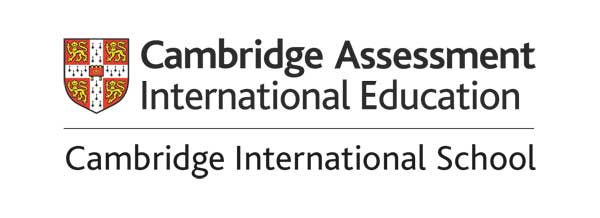The most important period in life is not the years of university study, but the earliest ones, the period from birth to six years. This is the time when a person's intelligence is formed, and not only this, but the totality of his mental faculties
Maria Montessori
Pluszowa Akademia
Our inspirations and values
Immersion
Immersion, is the most natural method of learning English. Thanks to the presence of an English-speaking teacher in our kindergarten, the children have constant contact with the language. Pre-school age is the ideal time to learn a language, because it is during this period that, thanks to their natural predisposition, children develop their native language skills intensively, gradually gaining control over pronunciation, syntax and an increasingly rich vocabulary. Adequate stimulation in second language learning at this time is a guarantee of quick and lasting results. There are periodic classes with a Native Speaker in each group, and by opting for language immersion, we are equipping children with invaluable capital that they will draw on throughout their lives.
Attachment Parenting
Attachment Parenting is a philosophy, based on the principle of ‘attachment theory’, which talks about creating an emotional bond between the child and parents and caregivers. In our kindergarten, the Child – Teacher / Caregiver relationship is based on the idea of Attachment Parenting. We are sensitive to the children’s needs, thus strengthening their sense of security and providing a respectful relationship. We accept all children’s emotions and try to participate in them, we teach how to express and name that emotions. We allow children to cry, get angry and upset. We build a secure attachment style with the children that promotes proper social and emotional development. Our working methods are not based on punishments and rewards… However, this is not so-called “Stress-free parenting”, but the consistent setting of boundaries. Our staff has participated in many trainings on attachment parenting, including those conducted by Ms Agnieszka Stein.
Non-violent communication
NVC Kindergarten Warsaw
Non-violent communication is also known as the language of empathy or the language of the heart. The creator of this method is the American psychologist and therapist Marshall B. Rosenberg. Thanks to this method, our NVC preschool nurtures self-esteem in children, we learn to respect ourselves and others, we learn to express our needs and expectations, and to accept answers, even if we do not always feel like listening. When we are aware of our needs and feelings, we find it easier to control ourselves and get our needs met. We encourage children to resolve conflicts on their own – the educator is not a judge, but a mediator. We put a lot of emphasis on developing the ability to communicate, as we believe it is one of the most important skills needed in life.
Pedagogy by Jesper Juul
Jesper Juul, is the creator of a humanistic parenting approach highly regarded in the circle of attachment parents and educators. His book, Your Competent Child, is one of the most highly regarded contemporary title on parenting. We are indebted to him for moving away from authoritarian upbringing based on obedience, punishment and psychological or physical violence and from a philosophy of educational permissiveness. He emphasises the importance of respect and cooperation in interactions with children and promotes mature adult leadership. Jesper Juul argues that children do not have to be polite at all – instead, they should have a healthy sense of self-esteem, believe in their own strengths and establish good relationships with others. Gradually, they should also learn to take responsibility for themselves and, if necessary, for others.
Nature and ecology
Ecology is very important to us, which is why we teach children to take care of our planet from an early age. We make them aware of the principles of ecological energy use, waste segregation, water saving and the use of reusable products. We emphasise daily contact with nature – we go for walks every day, because we are not afraid of rain or frost.
The catering at our kindergartens offers healthy food based on organically grown products without preservatives or sugar. Snacks in our nursery school are fresh fruit and vegetables.
Elements of Montessori
Maria Montessori built her pedagogy on the basis of respect for the needs and nature of the child. Upbringing in her understanding means supporting the child, who wants to discover the world around him independently. Montessori pedagogy develops qualities such as independence, creativity and confidence in oneself and one’s abilities. Its aim is to enable the child to develop comprehensively physically, spiritually, culturally and socially. The Montessori programme includes the teaching of practical life skills, sensorica (developing the senses), music and language, mathematical and cultural education. It develops an attitude of obedience based not on external coercion, but on self-control and respect for order and work, which in the kindergarten follows the idea: “Help me do it myself”.
Let us not force children to be active, but trigger activity. Don't make them think, but create the conditions for thinking. Do not demand, but convince. Let's allow the child to ask questions and slowly develop his or her mind so that he or she wants to see for himself or herself.
Janusz Korczak
The most important period in life is not the years of university study, but the earliest ones, the period from birth to six years. This is the time when a person's intelligence is formed, and not only this, but the totality of his mental faculties.
Maria Montessori
Pluszowa Akademia
Our inspirations and values
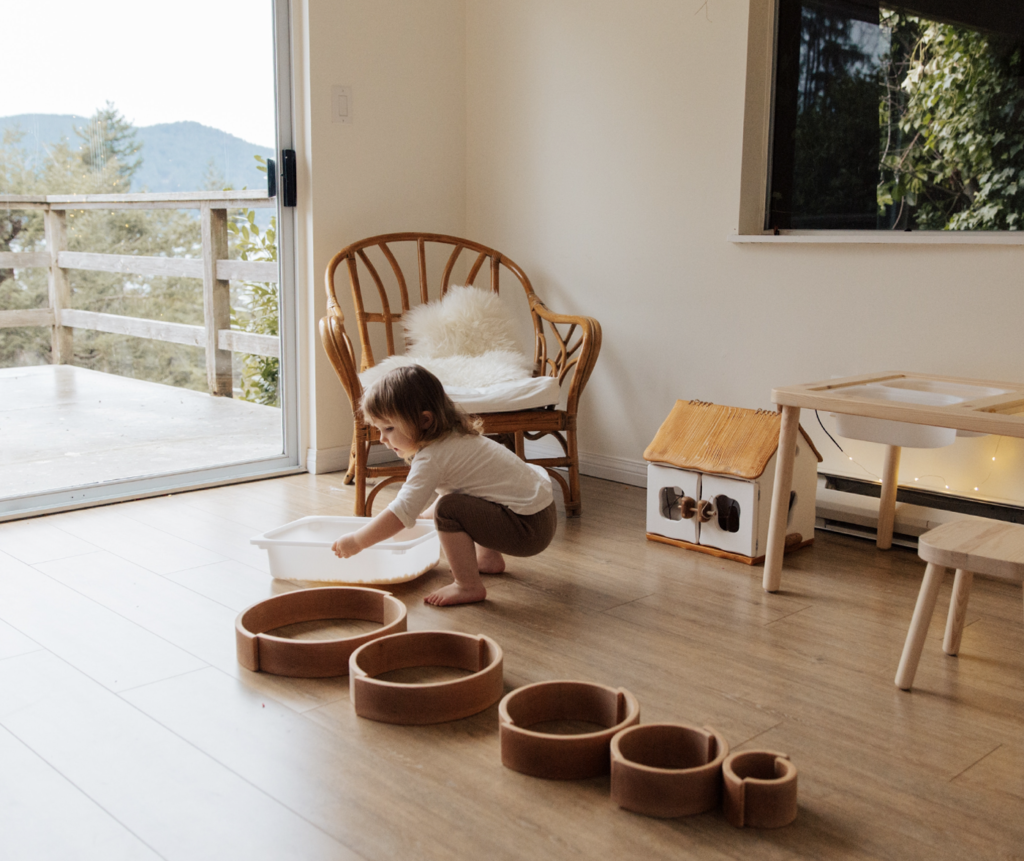
Immersion
Immersion, is the most natural method of learning English. Thanks to the presence of an English-speaking teacher in our kindergarten, the children have constant contact with the language. Pre-school age is the ideal time to learn a language, because it is during this period that, thanks to their natural predisposition, children develop their native language skills intensively, gradually gaining control over pronunciation, syntax and an increasingly rich vocabulary. Adequate stimulation in second language learning at this time is a guarantee of quick and lasting results. There are periodic classes with a Native Speaker in each group, and by opting for language immersion, we are equipping children with invaluable capital that they will draw on throughout their lives.
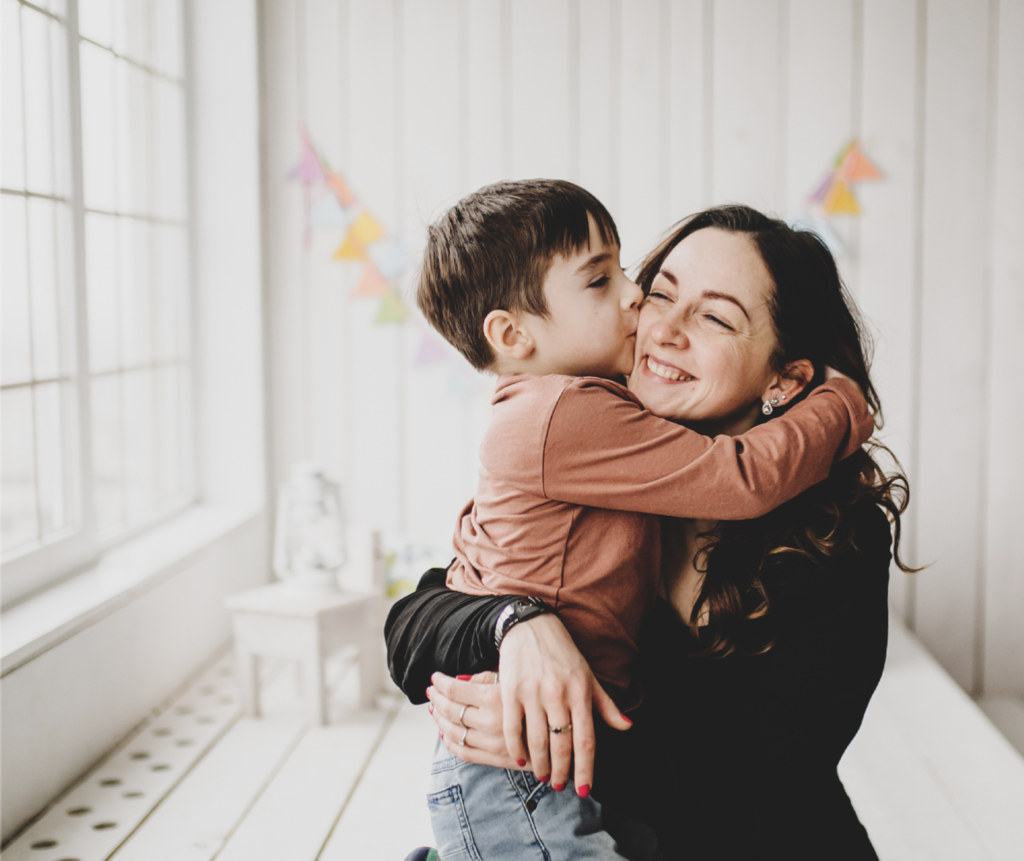
Attachment Parenting
Attachment Parenting is a philosophy, based on the principle of ‘attachment theory’, which talks about creating an emotional bond between the child and parents and caregivers. In our kindergarten, the Child – Teacher / Caregiver relationship is based on the idea of Attachment Parenting. We are sensitive to the children’s needs, thus strengthening their sense of security and providing a respectful relationship. We accept all children’s emotions and try to participate in them, we teach how to express and name that emotions. We allow children to cry, get angry and upset. We build a secure attachment style with the children that promotes proper social and emotional development. Our working methods are not based on punishments and rewards… However, this is not so-called “Stress-free parenting”, but the consistent setting of boundaries. Our staff has participated in many trainings on attachment parenting, including those conducted by Ms Agnieszka Stein.
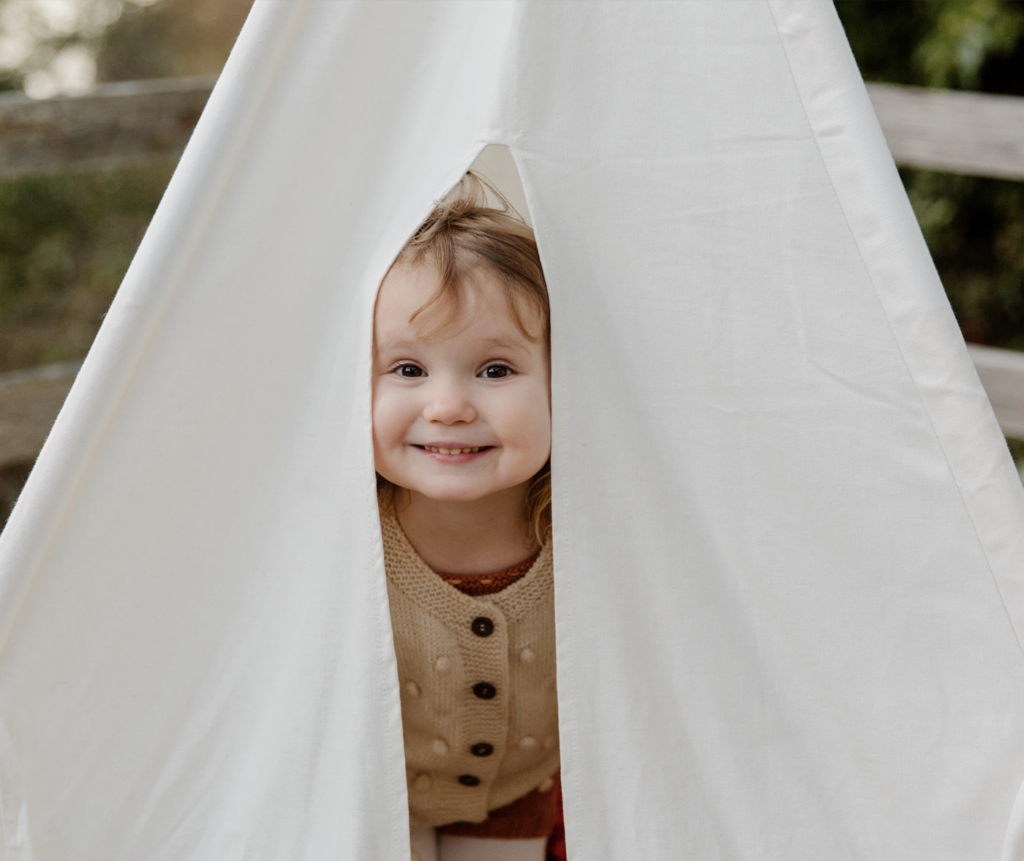
Non-violent communication
NVC Kindergarten Warsaw
Non-violent communication is also known as the language of empathy or the language of the heart. The creator of this method is the American psychologist and therapist Marshall B. Rosenberg. Thanks to this method, our NVC preschool nurtures self-esteem in children, we learn to respect ourselves and others, we learn to express our needs and expectations, and to accept answers, even if we do not always feel like listening. When we are aware of our needs and feelings, we find it easier to control ourselves and get our needs met. We encourage children to resolve conflicts on their own – the educator is not a judge, but a mediator. We put a lot of emphasis on developing the ability to communicate, as we believe it is one of the most important skills needed in life.
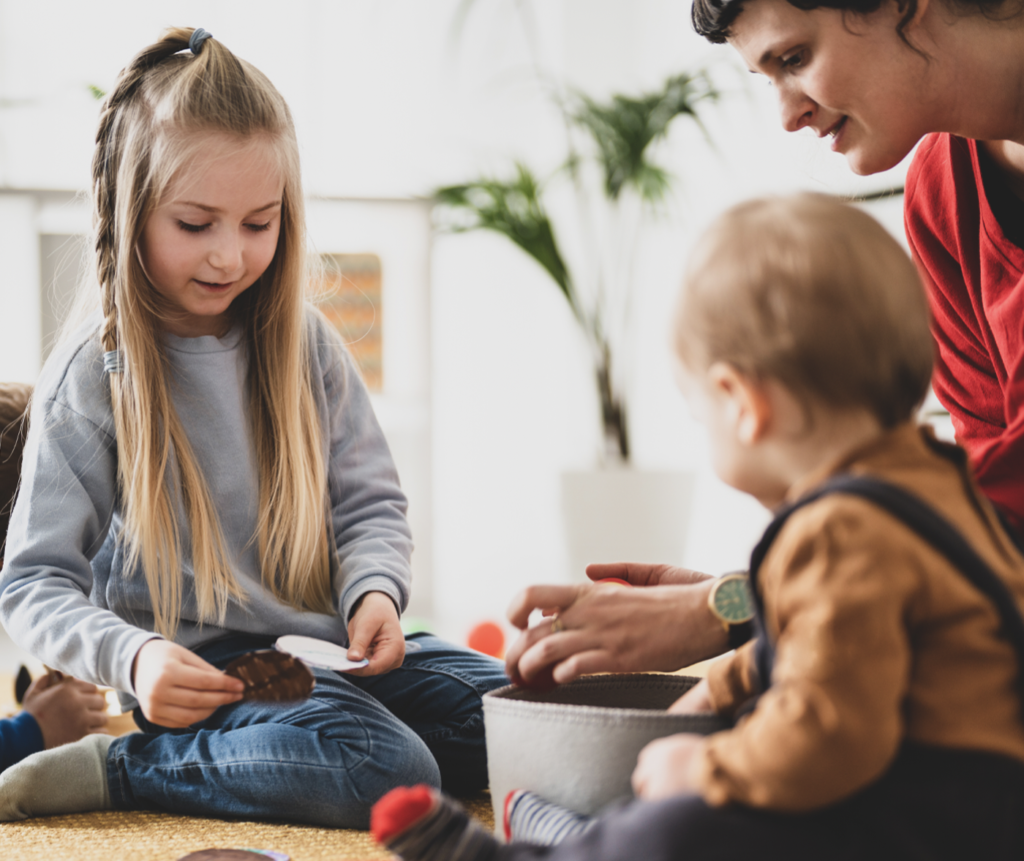
Pedagogy by Jesper Juul
Jesper Juul, is the creator of a humanistic parenting approach highly regarded in the circle of attachment parents and educators. His book, Your Competent Child, is one of the most highly regarded contemporary title on parenting. We are indebted to him for moving away from authoritarian upbringing based on obedience, punishment and psychological or physical violence and from a philosophy of educational permissiveness. He emphasises the importance of respect and cooperation in interactions with children and promotes mature adult leadership. Jesper Juul argues that children do not have to be polite at all – instead, they should have a healthy sense of self-esteem, believe in their own strengths and establish good relationships with others. Gradually, they should also learn to take responsibility for themselves and, if necessary, for others.
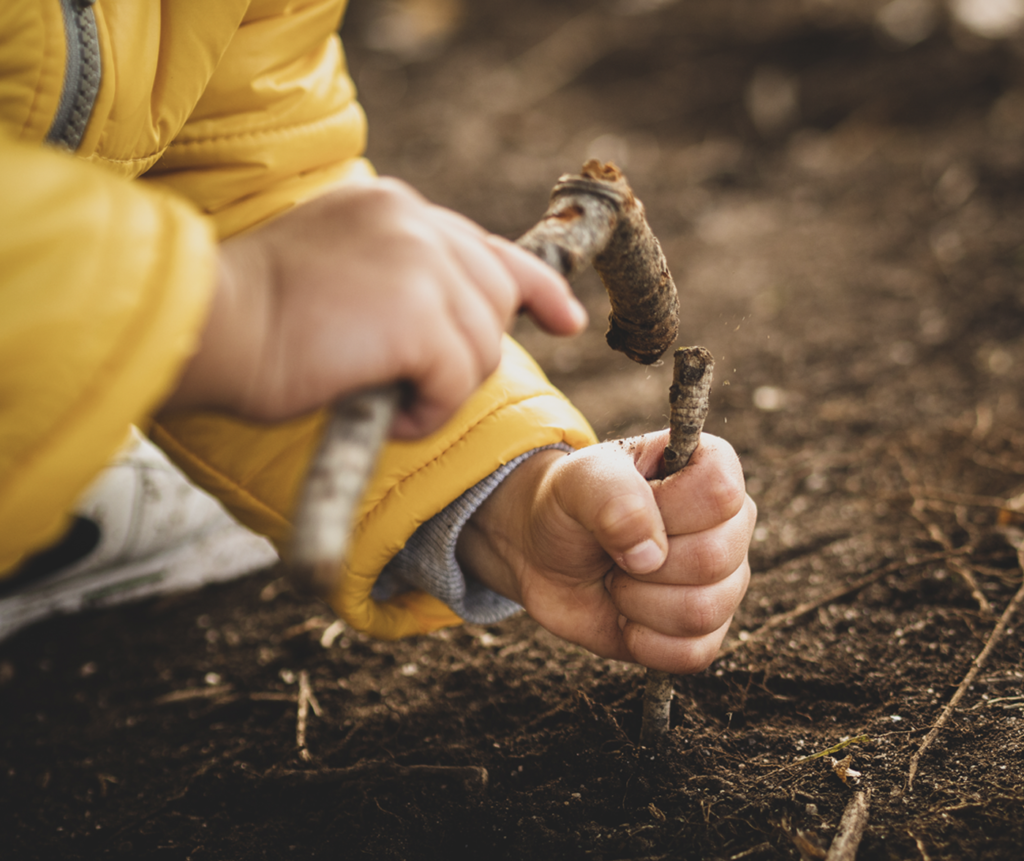
Nature and ecology
Ecology is very important to us, which is why we teach children to take care of our planet from an early age. We make them aware of the principles of ecological energy use, waste segregation, water saving and the use of reusable products. We emphasise daily contact with nature – we go for walks every day, because we are not afraid of rain or frost.
The catering at our kindergartens offers healthy food based on organically grown products without preservatives or sugar. Snacks in our nursery school are fresh fruit and vegetables.
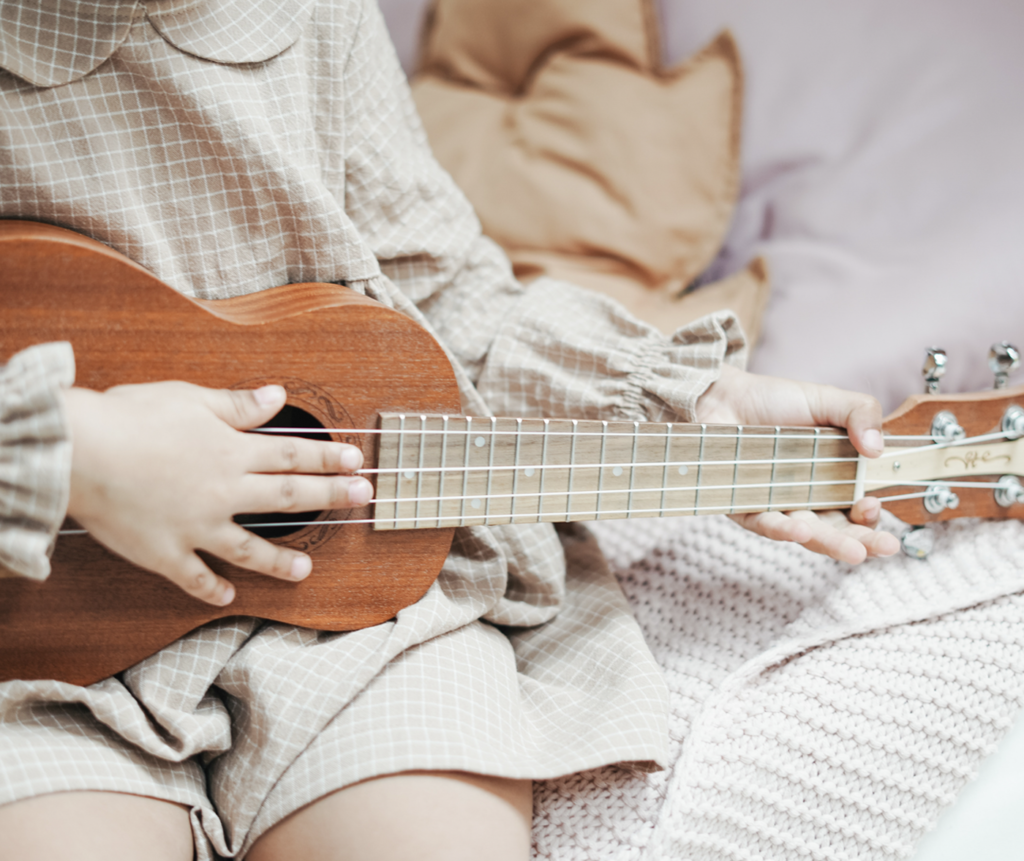
Elements of Montessori
Maria Montessori built her pedagogy on the basis of respect for the needs and nature of the child. Upbringing in her understanding means supporting the child, who wants to discover the world around him independently. Montessori pedagogy develops qualities such as independence, creativity and confidence in oneself and one’s abilities. Its aim is to enable the child to develop comprehensively physically, spiritually, culturally and socially. The Montessori programme includes the teaching of practical life skills, sensorica (developing the senses), music and language, mathematical and cultural education. It develops an attitude of obedience based not on external coercion, but on self-control and respect for order and work, which in the kindergarten follows the idea: “Help me do it myself”.

